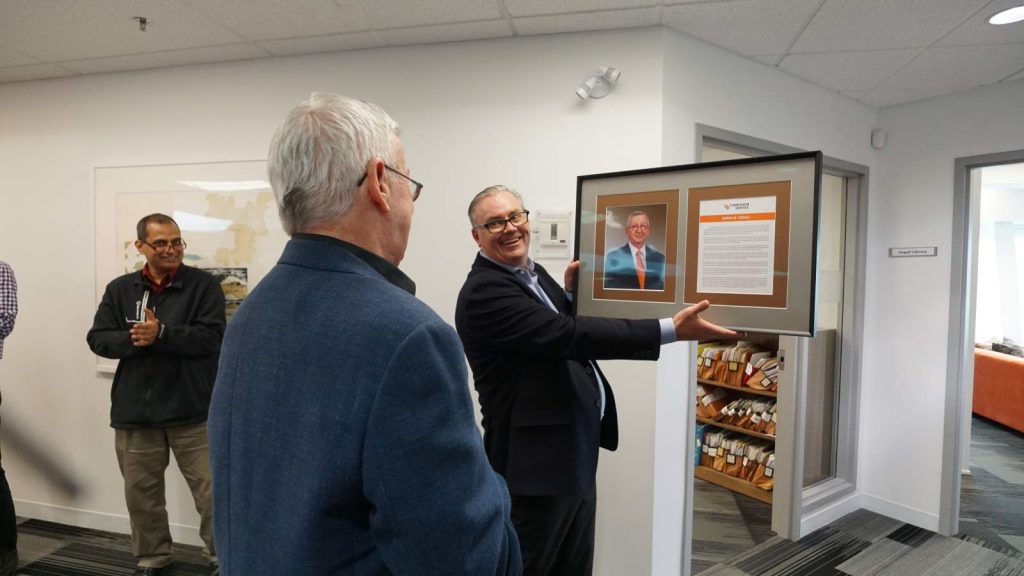Since our founding Corrosion Service has and remains a leader in the corrosion control industry, supporting the various industries in North America and around the World ensuring asset integrity by providing responsible engineering services.
As part of our continued commitment, we would like to welcome you to our electronic Library as the place to view our various technical papers written and presented since 1950 supporting, educating and advancing the corrosion industry advancement.
On your left you can select the author of interest to view all papers presented or enter a search by topic. For each, an abstract is provided and a download link for your review. We would be please to assist if you have any questions and feel free to contact us.

The Corrosion Service Library
We converted a prime corner office into a Library at our Head Office and dedicated the room to Sorin Segall because of his commitment to Corrosion Service, the numerous papers presented, the engineering mentoring within Corrosion Service and to our industry. We would be pleased for you to come and view this comprehensive library that includes various text books, relevant publications, all NACE Materials Performance magazines presented since first publication, technical bulletins and various other related corrosion related print material.
Our Technical Papers For Download
The analysis of indirect inspection data is a critical factor in conducting a successful External Corrosion Direct Assessment (ECDA) process. Any “out of range” data must be validated prior to being considered an ECDA indication. Furthermore, standard methods of validating the accuracy of the field […]
Two leaks were found on a recently installed (1999) pipeline which was coated with extruded polyethylene and protected with directly connected magnesium anodes. This paper describes the use of external corrosion direct assessment (ECDA) principles to identify locations where corrosion could pose a threat to […]
An effective In-line Inspection (ILI) program must provide a prioritized excavation response plan to address anomalies identified as being of particular concern. Locations that show potential for imminent or short term failure are prioritized under Phase 1 and Phase 2 responses respectively. Anomalies that could […]
Some recent papers contain inaccurate information regarding the validity of the -850 mVcsE current applied criterion, the so-called on-potential criterion. To qualify as a corrosion control criterion the -850 mVcsE value must imply a sound engineering judgment of the corrosion rate. Only the -850 mVcsE […]
Flue Gas Desulfurization (FGD) scrubbers made of Al-6XN® super-austenitic stainless steel experienced premature through wall corrosion failure after 18 months of operation. Multiple remedial methods were evaluated A PAPTM electrochemical corrosion prevention system supplied by Corrosion Service Company Limited was chosen and installed in the […]
The interpretation of the indirect inspection data is a critical factor in conducting a successful ECDA process. The data must be validated, discrepancies must be resolved, and indications must be identified, classified and prioritized, in order to select the sites for direct examinations. The pipeline […]
The quality of the indirect inspection data is a critical factor in conducting a successful ECDA program. New NACE standards (SP0207-20071 and TM 0109-092), improved instrumentation, experience sharing, and extensive training during the last several years, has resulted in a significant improvement in the accuracy […]
Sharing of common corridors by gas pipelines and overhead power transmission lines is becoming quite common. However, electrical energy can be transferred from power transmission lines to pipelines through inductive, conductive and capacitive coupling. When a power transmission line runs in parallel with a pipeline […]
